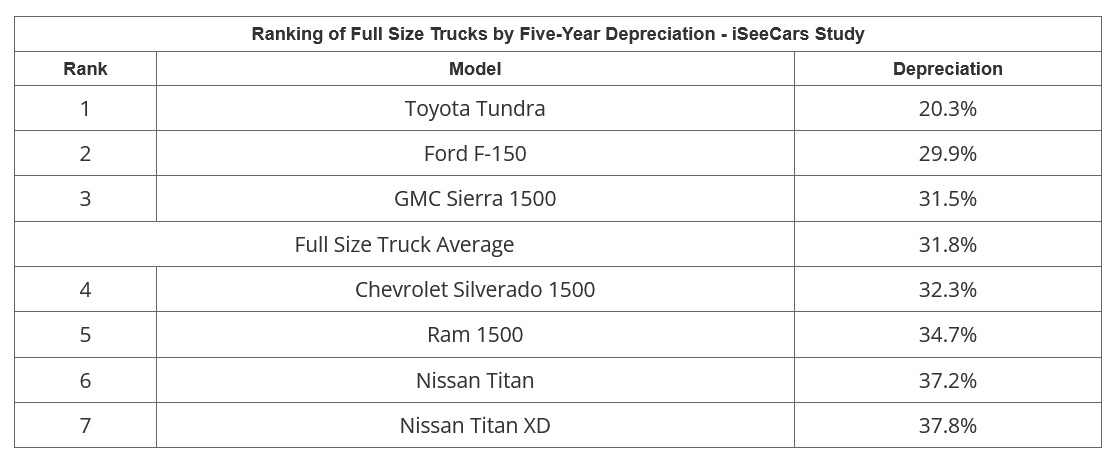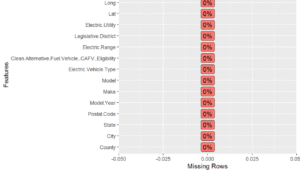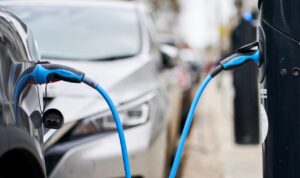How Depreciation Affects Used Electric Car Prices is a crucial aspect for anyone considering purchasing an electric vehicle. Understanding how depreciation works in this context not only helps buyers make informed decisions but also sheds light on the broader market trends influencing the resale value of these cars. With electric vehicles gaining popularity, it’s essential to explore how their unique characteristics affect pricing over time.
In this analysis, we will delve into the intricacies of depreciation, discussing various calculation methods and the factors that influence electric car values in the used market. We’ll explore current market trends, consumer preferences, and the impact of technological advancements, all of which play a significant role in determining the price of used electric vehicles.
Understanding Depreciation
Depreciation is a crucial concept in vehicle ownership, particularly when considering the resale value of used cars, including electric vehicles (EVs). In essence, depreciation refers to the decrease in a vehicle’s value over time, influenced by factors such as age, mileage, and market demand. Understanding how depreciation works can help buyers make informed decisions when purchasing used electric cars.Depreciation can be calculated using various methods, each offering a different perspective on how a vehicle’s value diminishes.
The most common methods include the straight-line method, which spreads the cost evenly over the life of the vehicle, and the declining balance method, which applies a fixed percentage to the vehicle’s remaining value each year. These methods can yield different depreciation rates, particularly for electric cars, which may have unique market dynamics.
Methods of Calculating Depreciation for Electric Cars
There are multiple approaches to calculating depreciation for electric vehicles. Understanding these methods provides insights into their financial impact on ownership. The three primary methods are as follows:
- Straight-Line Depreciation: This method allocates the same amount of depreciation each year. For instance, if an electric vehicle costs $40,000 and has a useful life expectancy of 10 years, it would depreciate by $4,000 annually.
- Declining Balance Method: Here, a fixed percentage is applied to the vehicle’s remaining value each year. For example, using a 20% depreciation rate, a $40,000 electric car would depreciate by $8,000 in the first year, leaving a balance of $32,000 for the second year’s calculation, leading to further depreciation.
- Units of Production Method: This method considers the vehicle’s usage, measuring depreciation based on mileage or other usage metrics. For electric vehicles, factors like battery life and charging cycles are significant, as they can greatly influence the car’s overall performance and, consequently, its resale value.
Factors Influencing Depreciation Rates in Used Electric Cars
Several factors contribute to the depreciation rates of used electric cars. Understanding these elements can help potential buyers predict the vehicle’s future value.Key factors include:
- Battery Life: Electric vehicles are often evaluated on the condition and longevity of their batteries. As batteries age, their performance can decline, significantly affecting resale value.
- Market Demand: The popularity of electric vehicles has been on the rise, and areas with high demand for EVs can see slower depreciation rates, while less demand can lead to faster declines in value.
- Technological Advancements: As technology rapidly evolves in the electric vehicle market, older models may depreciate more quickly as newer, more efficient models with better features are released.
- Brand Reputation: Manufacturers with strong reputations for reliability and customer satisfaction can see their used cars retain value better compared to brands with less favorable perceptions.
Understanding these depreciation factors can empower consumers to make savvy purchasing decisions regarding used electric cars. By factoring in depreciation, buyers can evaluate their investment and anticipate the vehicle’s potential future value in the market.
Market Trends for Electric Cars
The landscape for used electric cars is evolving rapidly, driven by various market trends that are reshaping consumer preferences and pricing strategies. As electric vehicles (EVs) become more mainstream, understanding these trends is critical for both buyers and sellers in the automotive market.One significant trend affecting used electric car prices is the increased demand from environmentally conscious consumers who prioritize sustainability.
As more people become aware of climate change and its impacts, they are leaning towards electric vehicles over traditional combustion engine cars. This shift is fueled not only by personal values but also by government incentives and policies promoting electric vehicle adoption. The growing availability of charging infrastructure further enhances this trend, making electric cars more appealing to a broader audience.
Consumer Demand for Used Electric Vehicles
The consumer market for used electric vehicles is currently experiencing noteworthy changes compared to traditional cars. Several factors influence this demand:
1. Cost-Effectiveness
Used electric cars often come with significantly lower price tags compared to their new counterparts, making them more accessible to budget-conscious buyers.
2. Lower Operating Costs
Owners of electric vehicles benefit from reduced fuel and maintenance costs, as EVs generally require less upkeep than traditional gasoline vehicles.
3. Incentives Renewed
Many governments offer tax credits or rebates for purchasing used electric vehicles, further incentivizing consumers to opt for EVs over traditional cars.
4. Awareness and Trends
As awareness of electric vehicles grows, consumers are increasingly seeking used options, realizing that they can own an environmentally friendly vehicle without the premium price of new models.As the electric vehicle market continues to grow, consumers are also becoming more discerning regarding the technology available in used EVs.
Technological Advancements Impacting Resale Value
Technological advancements in electric vehicle design and features play a crucial role in determining resale values. As manufacturers innovate, older models may depreciate faster due to the introduction of superior technology in newer models. Key aspects influencing resale value include:
Battery Technology
The lifespan and efficiency of battery technology are vital. Models with outdated batteries may see significant depreciation compared to newer models equipped with longer-lasting, more efficient batteries.
Software Updates
Many electric vehicles receive over-the-air updates that enhance performance and features post-purchase. Models that can adapt to new software may retain value better than those that cannot.
Autonomous Features
The integration of semi-autonomous driving features has become a selling point. Vehicles lacking advanced driver-assistance systems may struggle to compete in the resale market.In summary, as electric cars become more prevalent, the interplay between consumer demand, technological advancements, and market trends will continue to shape used electric car prices. Buyers and sellers must stay informed to navigate this dynamic landscape effectively.
Factors Influencing Electric Car Pricing: How Depreciation Affects Used Electric Car Prices

The pricing of used electric cars is influenced by several key factors that potential buyers should consider. Understanding these elements can help in making informed decisions when selecting a used electric vehicle. Factors such as mileage, battery life, and brand reputation play a crucial role in determining the overall value of these cars in the resale market.
Mileage Impact on Pricing
Mileage is one of the primary factors affecting the price of used electric cars. Generally, a vehicle with lower mileage is regarded as more desirable, as it indicates less wear and tear. Electric cars are no exception; the condition of their components is often linked to how much they have been driven. When analyzing the relation between mileage and pricing, consider the following:
- Electric vehicles typically have a longer lifespan compared to traditional vehicles, but high mileage can still lead to increased depreciation.
- Vehicles with mileage below the industry average are likely to demand a higher resale price due to perceived reliability and less anticipated maintenance.
- High mileage can significantly lower resale values, especially for models known to have battery degradation issues at elevated mileages.
Battery Life and Condition
The battery is a critical component of electric vehicles, and its life and condition significantly affect depreciation and resale value. As electric car technology continues to advance, battery performance becomes a vital consideration for prospective buyers. Key points regarding battery life include:
- Battery health is paramount; a car with a well-maintained battery can retain more of its value compared to one with a degraded battery.
- Replacement costs for batteries can be high, which influences the market price; vehicles requiring new batteries may see a steep decline in their resale value.
- Many manufacturers offer warranties on batteries, which can reassure buyers and positively impact pricing if the warranty is still valid.
Model and Brand Reputation Effects
The model and brand of an electric vehicle also play an influential role in its pricing structure. Certain brands are recognized for their reliability, performance, and technological advancements, which can enhance resale values. Important aspects of brand reputation include:
- Well-established brands like Tesla often command higher resale prices due to their strong market presence and high demand.
- Conversely, lesser-known brands may struggle to maintain their value, particularly if they lack a proven track record.
- Specific models known for durability or advanced technology, such as the Chevy Bolt or Nissan Leaf, can also see better resale values compared to other, less popular models.
Economic Impact on Used Car Market
Economic conditions play a significant role in the depreciation of used electric cars, which can influence their prices in the market. As economic factors fluctuate, they create a ripple effect on consumer behavior and demand for electric vehicles (EVs). Understanding these influences is crucial for potential buyers and sellers alike.
Effects of Economic Conditions on Depreciation
The depreciation of used electric cars is closely linked to broader economic conditions, including interest rates, unemployment rates, and overall consumer confidence. When the economy is thriving, consumers are more inclined to invest in newer models, which can lower the demand for used EVs, causing their prices to dip more steeply. Conversely, during economic downturns, consumers often turn to the used car market for more affordable options, potentially stabilizing prices for used electric vehicles.
Factors influencing depreciation include:
- Interest Rates: Higher rates can increase financing costs, leading to reduced demand for both new and used electric cars.
- Consumer Confidence: A positive economic outlook boosts consumer willingness to purchase, enhancing the market for used electric vehicles.
- Employment Rates: Higher employment typically correlates with increased disposable income, encouraging purchases of both new and used electric cars.
Government Incentives and Rebates Impact
Government incentives and rebates significantly impact the pricing of used electric cars. These incentives not only encourage the purchase of new EVs but also indirectly affect the used market. When consumers can avail themselves of tax credits and rebates for purchasing new electric vehicles, it often results in more trade-ins of older models, increasing the supply of used electric cars.
The influence of incentives can be summarized as:
- Promotion of New Sales: Incentives often motivate consumers to buy new EVs, leading to increased trade-in volumes.
- Price Stabilization: Increased supply from trade-ins can initially depress used electric car prices, but as demand rises due to the incentives, prices can stabilize over time.
- Market Perception: Government support for electric vehicles enhances consumer confidence in the market, boosting overall demand.
Correlation Between Fuel Prices and Demand
Fuel prices exert a notable influence on the demand for used electric vehicles. As gasoline prices rise, consumers often seek alternatives to mitigate fuel costs, leading to increased interest in electric cars. The relationship between fuel prices and electric vehicle demand is particularly evident during times of high oil prices.Key points regarding this correlation include:
- Price Sensitivity: When fuel prices are high, consumers become more price-sensitive and are likely to consider electric cars as a cost-effective solution.
- Increased Awareness: Rising fuel costs can also lead to heightened awareness about the long-term savings of owning an electric vehicle.
- Market Dynamics: Fluctuating fuel prices can create volatility in the used electric car market, impacting resale values and buyer interest.
Comparative Analysis with Traditional Vehicles
As electric vehicles (EVs) gain popularity, understanding how their depreciation compares to traditional gasoline vehicles is essential for potential buyers and sellers. Depreciation is a key factor influencing the resale value of any car, and while both electric and gasoline vehicles experience depreciation, the rates and reasons can differ significantly.When analyzing depreciation rates, it’s important to note that electric cars generally depreciate at different speeds than their traditional counterparts.
Factors such as technology advancements, market demand, and consumer perception play critical roles in shaping these rates. Electric vehicles tend to have a reputation for rapid technological obsolescence, which can lead to a quicker depreciation compared to conventional cars. However, the growing demand for sustainable transport solutions is beginning to stabilize EV values in certain segments.
Depreciation Rate Comparison, How Depreciation Affects Used Electric Car Prices
A detailed examination reveals the depreciation rates of various electric car models compared to traditional gasoline vehicles. The table below illustrates how specific models have depreciated over time, highlighting the differences between electric and gasoline cars.
| Car Model | Type | Depreciation after 3 Years | Depreciation after 5 Years |
|---|---|---|---|
| Tesla Model 3 | Electric | 15% | 25% |
| Nissan Leaf | Electric | 18% | 30% |
| Honda Accord | Gasoline | 20% | 33% |
| Toyota Camry | Gasoline | 22% | 35% |
This table reveals that while electric vehicles like the Tesla Model 3 exhibit relatively lower depreciation after three years compared to traditional vehicles, the trend shifts slightly after five years, particularly for older models or those with rapidly advancing technology. Unique selling points for electric vehicles, such as lower operating costs, tax incentives, and environmentally friendly credentials, can positively influence their resale value.
The increasing availability of charging infrastructure and advancements in battery life also contribute significantly to the attractiveness of electric cars in the used market. Moreover, as consumers become more environmentally conscious, the demand for electric vehicles is expected to rise, potentially stabilizing their resale values in the long run. As the market adapts and evolves, understanding these dynamics becomes crucial for navigating the used car market effectively.
Future Outlook for Electric Car Prices
The future of electric car prices is a topic of growing importance as the automotive industry shifts significantly toward sustainable energy. With advancements in technology and a greater focus on environmental issues, it is essential to understand how depreciation will evolve in this sector, particularly in the used car market.As electric vehicles (EVs) become more mainstream, predictions indicate that their depreciation rates may stabilize over time.
Historically, electric cars experienced steeper depreciation than traditional vehicles, largely due to battery concerns and rapid advancements in technology. However, as battery technology improves and becomes more reliable, the resale value of used electric cars is expected to rise. Furthermore, established brands like Tesla are already showcasing strong resale values, suggesting that high demand can mitigate depreciation rates.
Influence of Upcoming Regulations on Electric Vehicle Pricing
Upcoming regulations are predicted to have a substantial effect on EV pricing and their overall market stability. Governments worldwide are implementing policies to promote electric vehicle adoption, which could lead to increased demand and potentially higher resale values. The following factors highlight how regulations may influence electric car prices:
- Incentives and Subsidies: Government incentives for purchasing EVs can lower initial costs and make them more attractive to buyers, which could bolster future resale values.
- Emission Standards: Stricter emission regulations may push consumers away from traditional vehicles, leading to higher demand for electric alternatives and stabilizing their prices.
- Battery Recycling Regulations: New laws regarding battery disposal and recycling may enhance consumer confidence in EV longevity, impacting their worth in the used market.
- Infrastructure Development: Government investment in EV infrastructure, such as charging stations, can improve the usability of electric vehicles and, as a result, support their market value.
Anticipated Trends Impacting the Used Electric Car Market
Several key trends are anticipated to shape the used electric car market in the coming years. These trends reflect shifts in consumer behavior, technological advancements, and economic factors that could influence pricing dynamics.The following points Artikel significant trends to watch:
- Increased Adoption of EVs: As more consumers transition to electric vehicles, the used market will likely see more available options, affecting supply and demand relationships.
- Battery Life Improvements: Innovations in battery technology may enhance the longevity and performance of used electric cars, leading to better resale values.
- Consumer Awareness: Growing awareness of environmental issues and sustainability may drive demand for used electric vehicles, making them more desirable in the market.
- Technological Advances: Continuous improvements in features and technology in new EV models may lead to increased interest in older models, particularly those with competitive specifications.
- Financial Market Fluctuations: Changes in interest rates and financing options could influence consumer purchasing power, directly impacting electric vehicle prices in the used market.
“Understanding the dynamics of regulatory changes and market trends is essential for predicting the future of electric car prices.”
Tips for Buying Used Electric Cars
When considering the purchase of a used electric car, understanding depreciation and how it impacts pricing is essential. As the market for electric vehicles continues to evolve, buyers must be equipped with knowledge on how to assess vehicle value, history, and negotiating tactics tailored for electric cars. This knowledge not only helps secure a better deal but also enhances the overall buying experience.Evaluating depreciation when purchasing used electric cars involves several key considerations.
Electric vehicles typically experience different depreciation rates compared to traditional combustion vehicles. Recognizing these trends can lead to smarter buying decisions. It’s essential to keep in mind that the depreciation of electric cars often varies based on battery life, technological advancements, and market demand.
Importance of Vehicle History Reports
Vehicle history reports play a crucial role in assessing the reliability and value of used electric cars. These reports provide detailed information about a vehicle’s past, including accidents, service history, and ownership changes. Buyers should always request a comprehensive vehicle history report prior to making a purchase.A well-documented history can indicate whether a car has been well-maintained or if it has faced significant issues that could affect its longevity and performance.
Notably, the report can reveal previous battery replacements or recalls, which are particularly relevant for electric vehicles due to their reliance on batteries.
Best Practices for Price Negotiation
Effectively negotiating the price of a used electric car involves understanding depreciation factors and how they influence pricing. Knowledge of market trends and vehicle condition can empower buyers during negotiations. Below are some best practices to follow:Consider the following strategies when negotiating prices:
- Research Comparable Models: Investigate prices of similar models in your area to have a solid benchmark for negotiations. Platforms like Kelley Blue Book or Edmunds can provide valuable insights into fair market values.
- Highlight Depreciation Rates: Use depreciation data to inform your negotiation. Acknowledge how electric cars tend to depreciate differently and leverage this in discussions.
- Discuss Battery Health: The condition of the battery significantly impacts the value of an electric vehicle. Utilize any information about battery life and performance as a bargaining chip.
- Be Prepared to Walk Away: If negotiations do not meet your expectations, be willing to explore other options. Sometimes, walking away can lead to better offers from the seller.
“Knowledge is power; informed negotiations can lead to better deals on used electric cars.”






